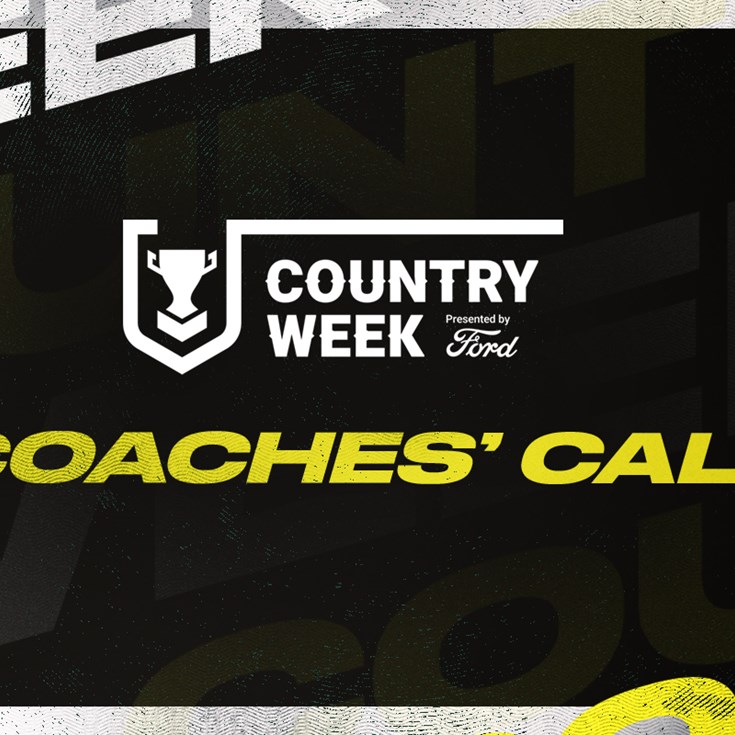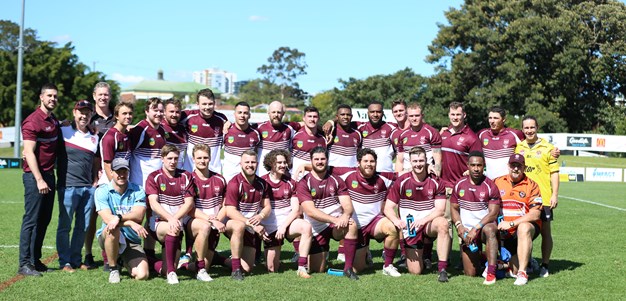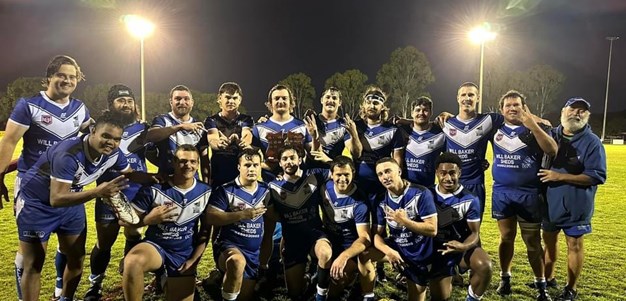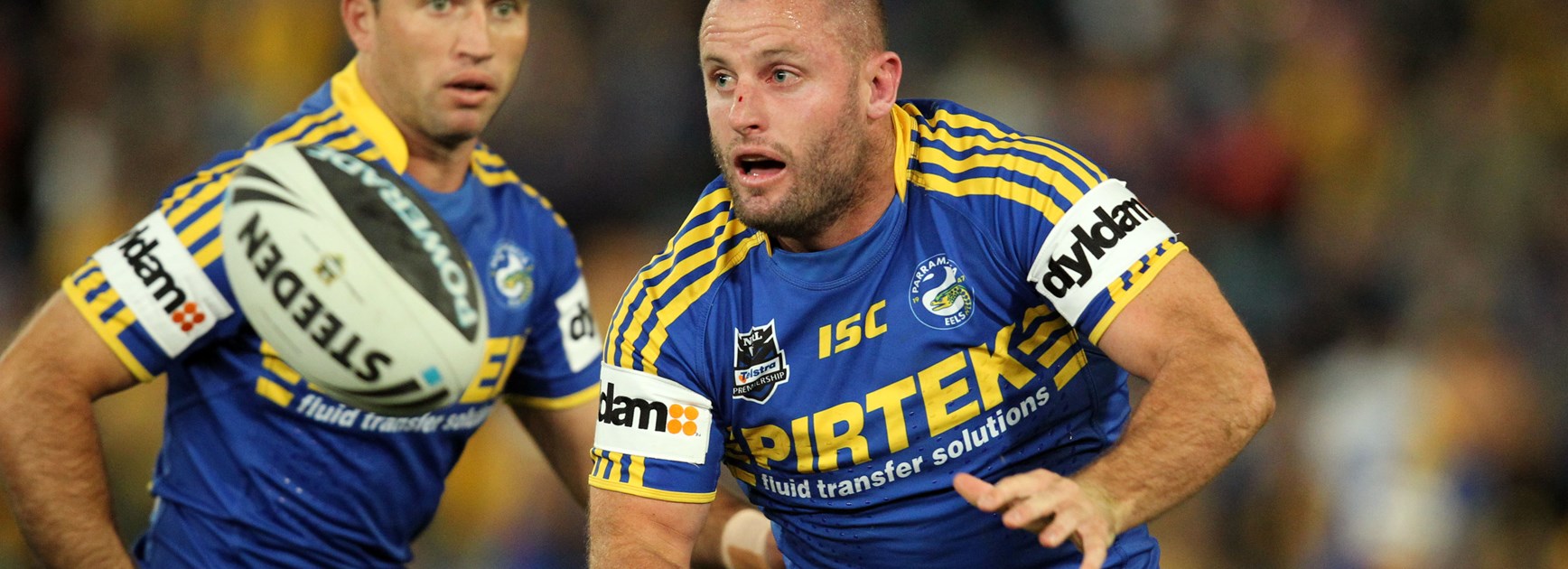
Each week former Queensland State of Origin strike weapon Chris Walker writes exclusively for QRL.com.au.
If I was asked what the toughest aspect of being a first grade rugby league player is, I’d have to say it’s the public scrutiny.
You have to remember that not everyone becomes a footballer because they want to become famous or a spokesperson.
Some are just athletes who happen to be exceptionally good at the sport and enjoy the physical aspect, who climb the ranks as good professionals do in any endeavour, not necessarily to earn external accolades or become public influencers.
There are plenty of stories of players who briefly flirted with NRL, then decided they’d rather be back home with mates, or living out of the spotlight as a concretor or teacher or something like that.
The shame in that scenario is that they’ll never be able to say they tested themselves at the highest level in their profession, unlike other jobs where being a ‘public face’ isn’t a requirement.
Scrutiny on social media, in particular, can be a double-edged sword.
In the old days, if you had a shocker on the field, you ran the gauntlet for the brief few moments you left the dressing sheds until you got to your car.
People who thought they were heroes might yell abuse at you, but once you drove out of that car park and back to your home, you would be left alone most times.
Nowadays with social media, players and coaches can be under siege 24-7.
Twitter had just come into popularity when I was winding down my career.
I’ll admit that if I had a great game, I’d sit down after a game and read through all the comments, because I knew they would be mostly positive.
The flipside was that, if I had a dud performance, I wouldn’t go near Twitter for half of the week.
It was like taking refuge in your own home and wanting to black out the windows.
In 2011 I got into trouble a couple of times through Twitter while at Parramatta.
Once was because I unloaded on a fan who was criticising me, which I shouldn’t have done. I shouldn’t have lowered myself to that level.
Another time, I quoted a popular line from the movie The Hangover, where one character tries to get his friend’s attention by shouting: “Paging Doctor Fa**ot”.
That was definitely a stupid move in retrospect. At the time I was only having a laugh with my mates…until I rocked up to training the next day and a whole furore erupted.
I can categorically state I’m not homophobic at all, and I was happy enough to go through an education process around homophobia and make a public statement about it.
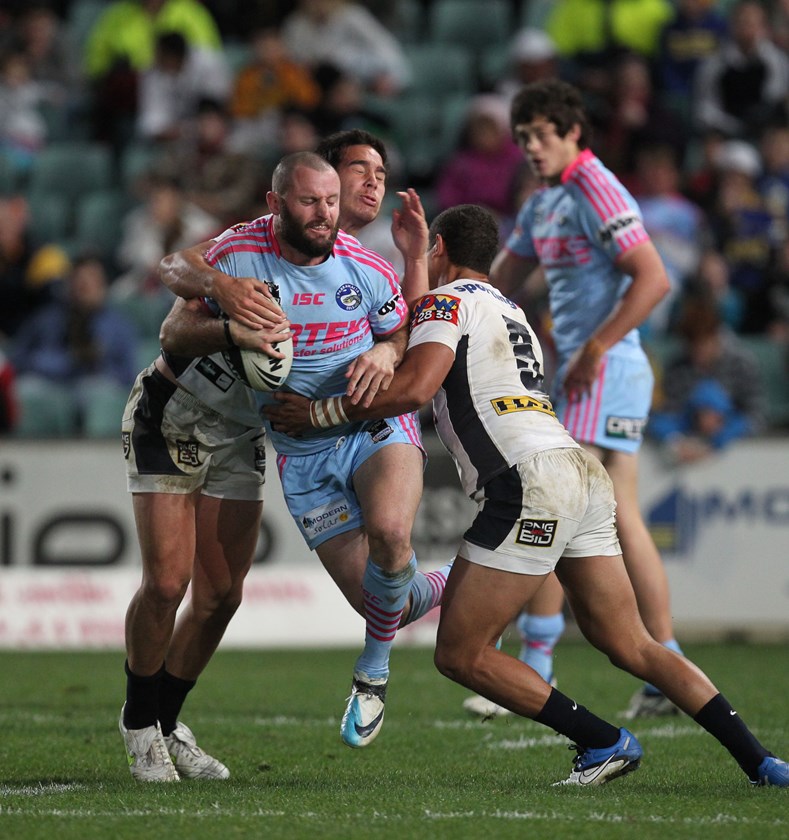
Stuff like that just goes to show you how kids coming through today have to be careful about what trail they leave on social media.
I’d say, because they’ve grown up with it, the younger generation are arguably better at handling it than when some of us oldies latched on to it like a new toy when it first became popular.
For all the negative sides to social media, lots of guys are spinning it into big positives.
Cameron Smith has more followers than a lot of media outlets and that’s incredibly powerful if you want to get a message out.
Whether it’s to support a good cause, to promote a business, or to have a right of reply to a topical matter, that audience is very useful.
If you got slammed unfairly by a reporter in the newspaper in the old days, you really couldn’t do much about it.
Now you can present your side and allow the public to make an informed decision.
You can also shape and direct conversations.
If you’ve had a shocker, come off the field and own up to it on Twitter or Instagram, fans are much more likely to see you’re a real person and sympathise, rather than be purely vindictive.
I reckon one player who has definitely seen what a double-edged sword social media can be is Corey Norman.
He’s been pretty cluey about starting up his own fashion label and promoting it through social media, but after Parramatta started the season with five straight losses, it’s probably not a place he wants to hang out much.
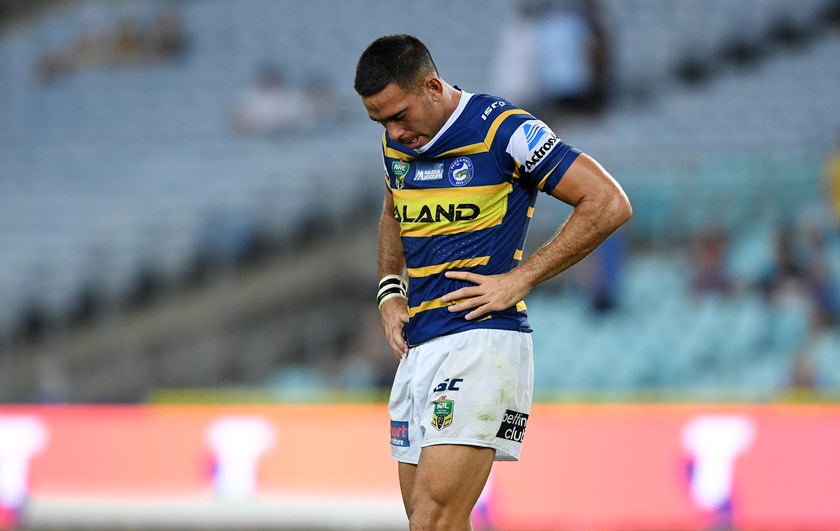
If a fanatic wanted to get under your skin in bygone eras from Monday to Friday, they’d have to sit down, write an angry letter to the club, post it off and then, most times, that wouldn’t even reach you.
Now armchair critics can be sitting at home in their undies eating corn chips and fire off insults direct to your inbox at 2am if they like.
If social media makes everyone a journalist, then you have 20,000-plus journalists critiquing you every game.
It probably seems harmless, because footballers have this external face of being quite resilient and confident, and able to rise above it all.
Unlike most other people, players also have a few dozen teammates around them who can lift them up and tell them to brush it off.
But it’s still a form of bullying, and I think it desensitises people to bullying that may occur to people in other areas of society, who don’t have that same support network.
If a kid at school starts copping that sort of abuse from people who think it’s acceptable – well it’s no wonder that there are incidents of self-harm.
I’ll also tell you what we don’t consider enough, and that’s the mental health of coaches.
Being a coach can be a very lonely job, and although they have support staff, they walk the tightrope alone when it comes to the public’s assessment of their team.
I believe that comments on social media do have a direct impact on whether coaches keep their jobs.
Club chief executives and directors are mostly on social media, and I think the temptation to react to negative feedback about the coach has heightened.
It’s probably something we all do – take notice of the negative comments above all the things that are positive in our lives.
At the end of the day, it’s always best to measure yourself against your own expectations - nobody else’s. And even then, life’s too short to be dwelling on negatives.
